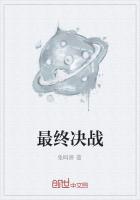His verse is eminent for sweet and gracious fluency; this is a real note of the 'Elizabethan' poets. His subjects are frequently pastoral, with a classical tinge, more or less slight, infused; his language, though not free from exaggeration, is generally free from intellectual conceits and distortion, and is eminent throughout for a youthful NAIVETE. Such, also, are qualities of the latter sixteenth century literature. But if these characteristics might lead us to call Herrick 'the last of the Elizabethans,' born out of due time, the differences between him and them are not less marked. Herrick's directness of speech is accompanied by an equally clear and simple presentment of his thought; we have, perhaps, no poet who writes more consistently and earnestly with his eye upon his subject. An allegorical or mystical treatment is alien from him: he handles awkwardly the few traditional fables which he introduces. He is also wholly free from Italianizing tendencies: his classicalism even is that of an English student,--of a schoolboy, indeed, if he be compared with a Jonson or a Milton. Herrick's personal eulogies on his friends and others, further, witness to the extension of the field of poetry after Elizabeth's age;--in which his enthusiastic geniality, his quick and easy transitions of subject, have also little precedent.
If, again, we compare Herrick's book with those of his fellow- poets for a hundred years before, very few are the traces which he gives of imitation, or even of study. During the long interval between Herrick's entrance on his Cambridge and his clerical careers (an interval all but wholly obscure to us), it is natural to suppose that he read, at any rate, his Elizabethan predecessors: yet (beyond those general similarities already noticed) the Editor can find no positive proof of familiarity.
Compare Herrick with Marlowe, Greene, Breton, Drayton, or other pretty pastoralists of the HELICON--his general and radical unlikeness is what strikes us; whilst he is even more remote from the passionate intensity of Sidney and Shakespeare, the Italian graces of Spenser, the pensive beauty of PARTHENOPHIL, of DIELLA, of FIDESSA, of the HECATOMPATHIA and the TEARS OF FANCY.
Nor is Herrick's resemblance nearer to many of the contemporaries who have been often grouped with him. He has little in common with the courtly elegance, the learned polish, which too rarely redeem commonplace and conceits in Carew, Habington, Lovelace, Cowley, or Waller. Herrick has his CONCETTI also: but they are in him generally true plays of fancy; he writes throughout far more naturally than these lyrists, who, on the other hand, in their unfrequent successes reach a more complete and classical form of expression. Thus, when Carew speaks of an aged fair one When beauty, youth, and all sweets leave her, Love may return, but lovers never!
Cowley, of his mistress--
Love in her sunny eyes does basking play, Love walks the pleasant mazes of her hair: or take Lovelace, 'To Lucasta,' Waller, in his 'Go, lovely rose,'--we have a finish and condensation which Herrick hardly attains; a literary quality alien from his 'woodnotes wild,' which may help us to understand the very small appreciation he met from his age. He had 'a pretty pastoral gale of fancy,' said Phillips, cursorily dismissing Herrick in his THEATRUM: not suspecting how inevitably artifice and mannerism, if fashionable for awhile, pass into forgetfulness, whilst the simple cry of Nature partake in her permanence.
Donne and Marvell, stronger men, leave also no mark on our poet.
The elaborate thought, the metrical harshness of the first, could find no counterpart in Herrick; whilst Marvell, beyond him in imaginative power, though twisting it too often into contortion and excess, appears to have been little known as a lyrist then:-- as, indeed, his great merits have never reached anything like due popular recognition. Yet Marvell's natural description is nearer Herrick's in felicity and insight than any of the poets named above. Nor, again, do we trace anything of Herbert or Vaughan in Herrick's NOBLE NUMBERS, which, though unfairly judged if held insincere, are obviously far distant from the intense conviction, the depth and inner fervour of his high-toned contemporaries.
It is among the great dramatists of this age that we find the only English influences palpably operative on this singularly original writer. The greatest, in truth, is wholly absent: and it is remarkable that although Herrick may have joined in the wit-contests and genialities of the literary clubs in London soon after Shakespeare's death, and certainly lived in friendship with some who had known him, yet his name is never mentioned in the poetical commemorations of the HESPERIDES. In Herrick, echoes from Fletcher's idyllic pieces in the FAITHFUL SHEPHERDESS are faintly traceable; from his songs, 'Hear what Love can do,' and 'The lusty Spring,' more distinctly. But to Ben Jonson, whom Herrick addresses as his patron saint in song, and ranks on the highest list of his friends, his obligations are much more perceptible. In fact, Jonson's non-dramatic poetry,--the EPIGRAMS and FOREST of 1616, the UNDERWOODS of 1641, (he died in 1637),-- supply models, generally admirable in point of art, though of very unequal merit in their execution and contents, of the principal forms under which we may range Herrick's HESPERIDES.
The graceful love-song, the celebration of feasts and wit, the encomia of friends, the epigram as then understood, are all here represented: even Herrick's vein in natural description is prefigured in the odes to Penshurst and Sir Robert Wroth, of 1616. And it is in the religious pieces of the NOBLE NUMBERS, for which Jonson afforded the least copious precedents, that, as a rule, Herrick is least successful.











